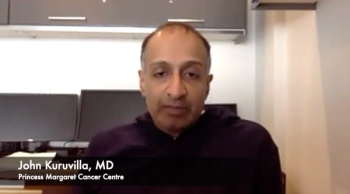
The expert in hematology highlighted the toxicities reported in this trial and explained the differences observed between the 2 drugs studied.

Your AI-Trained Oncology Knowledge Connection!


The expert in hematology highlighted the toxicities reported in this trial and explained the differences observed between the 2 drugs studied.
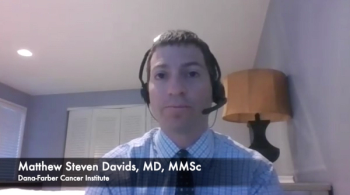
The chronic lymphocytic leukemia expert spoke about the possible use of venetoclax plus dose-adjusted R-EPOCH in various hematologic patient populations.
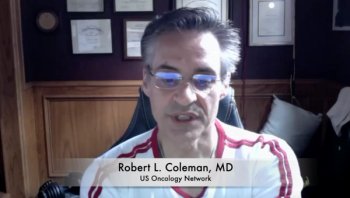
The expert discussed study methods from the NRG Oncology/Gynecologic Oncology Group (GOG) study presented at the 2020 ASCO Virtual Program.
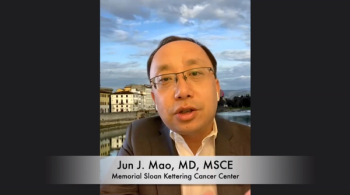
At the 2020 ASCO Virtual Program, Jun J. Mao, MD, MSCE, presented a study designed to evaluate the comparative effectiveness of electro-acupuncture and auricular acupuncture versus usual care in managing pain in cancer survivors.

Data from the registry suggested that in patients with cancer and COVID-19, cancer that is progressing was independently associated with an increased risk of death.

The expert explained how states that expanded Medicaid coverage saw a steeper decline in cancer mortality rates, and next steps for further evaluation.
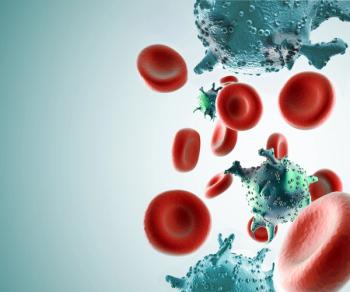
At the 2020 ASCO Virtual Program, Courtney DiNardo, MD, presented on a study of the combination therapy consisting of ivosenidib plus venetoclax with or without azacytidine patients with IDH1-mutated acute myeloid leukemia.
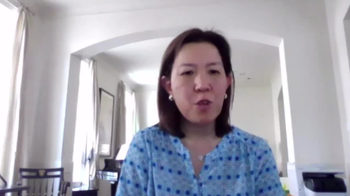
At the 2020 ASCO Virtual Scientific Program, Karen H. Lu, MD, presented on findings from the MAGENTA trial, designed to test whether pre and/or post-test genetic counseling is needed to optimally deliver online accessible genetic testing.
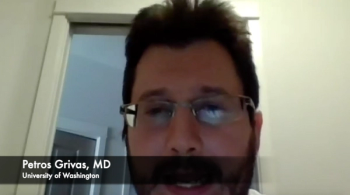
The expert oncologist discussed the findings of the COVID-19 and Cancer Consortium and how the results of the consortium should inform conversations with patients with cancer.
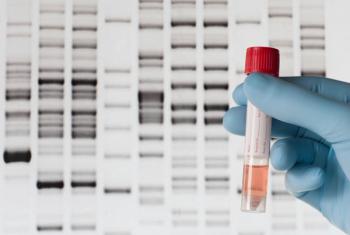
The expert discussed study methods and results from the MAGENTA trial evaluating pre and/or post-test genetic counseling.
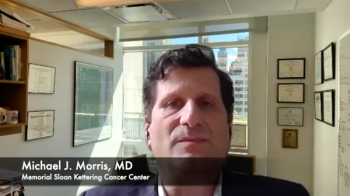
Results of phase 3 CONDOR study could have a far-reaching impact on patients with prostate cancer.
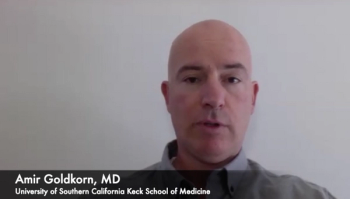
The University of Southern California expert discusses next steps for the trial and how the recent results could impact the future of care for patients with prostate cancer.
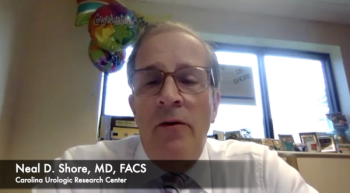
Results showed that once daily relugolix established superiority over leuprolide and reduced the incidence of major cardiovascular events.

The associate director for Patient Outcomes in the Oncology Center of Excellence at the FDA spoke about the new pilot program and how it could aid patients and providers moving forward.

Excluding unassisted attempts to quit smoking, approved medications were more likely to be utilized than other cessation methods in this study, demonstrating a strong correlation with successful quit attempts.
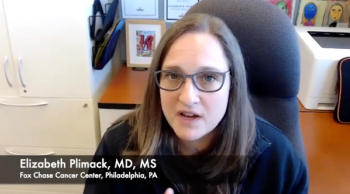
Elizabeth Plimack, MD, MS, discussed the depth of response for patients included in the KEYNOTE-426 trial investigating axitinib and pembrolizumab over sunitinib for patients with advanced renal cell carcinoma.
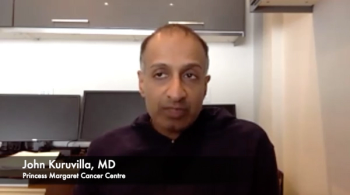
The expert in hematology discussed the next steps for the trial and what the goals are for the use of pembrolizumab in this patient population moving forward.

The director of Molecular Pathology and assistant professor of Pathology at Cedars-Sinai spoke about the use of NGS testing to match patients with targeted therapy.
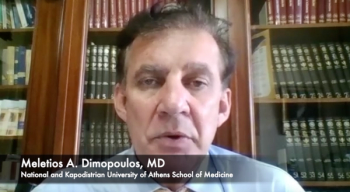
Meletios A. Dimopoulos, MD, discussed the reassuring aspects and future implications of the phase III Boston study examining a new combination therapy to treat patients with multiple myeloma.

In a recent interview with CancerNetwork, Fumiko Chino, MD, discussed the need to evaluate Medicare’s impact on cancer mortality rates, and moreover, what she and her colleagues found in a recent study presented at the 2020 ASCO Virtual Program.
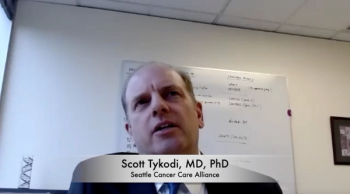
The Seattle Cancer Care Alliance Expert offered background on the first-line use of pembrolizumab monotherapy in advanced clear cell renal cell carcinoma.

As the national opioid crisis has created new challenges in pain management, cancer survivors are in need of non-pharmacological options.

The MD Anderson expert discussed the phase 3 trial – designed to evaluate frontline eprenetapopt in combination with azacytidine (Vidaza) in patients with TP53-mutant positive myelodysplastic syndrome (MDS) – that recently completed full enrollment.
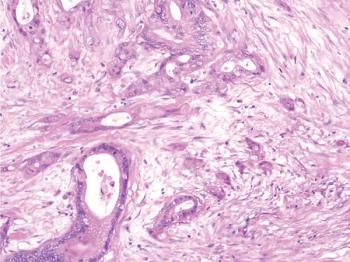
An investigational PD-L1 PROBODY therapeutic, CX-072, demonstrated durable responses and appeared tolerable in patients across multiple tumor types.
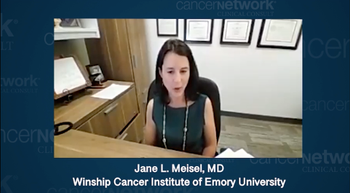
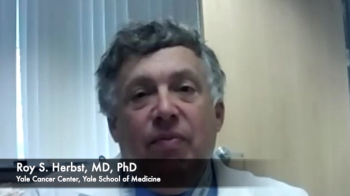
Roy S. Herbst, MD, PhD, presented a late breaking abstract on behalf of his colleagues regarding the ADAURA trial, which analyzed osimertinib as an adjuvant therapy to treat patients with non-small cell lung cancer.
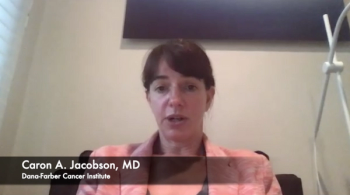
The study assessed the use of axicabtagene ciloleucel in patients with relapsed or refractory indolent non-Hodgkin lymphoma.
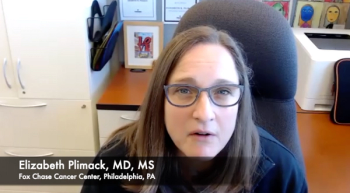
Elizabeth Plimack, MD, MS, discussed the analysis of risk categories for patients included in the KEYNOTYE-426 trial investigating axitinib and pembrolizumab over sunitinib for patients with advanced renal cell carcinoma.
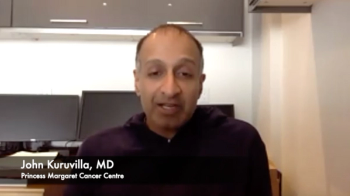
The expert in hematology suggested that these findings represent a clinically meaningful benefit for patients that received pembrolizumab in the study, compared to those who received brentuximab vedotin.
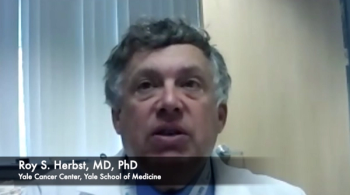
Roy S. Herbst, MD, PhD, of the Yale Cancer Center discussed the future of lung cancer treatment to follow the phase III ADAURA trial regarding osimertinib as adjuvant therapy to treat NSCLC presented at the 2020 ASCO Virtual Scientific Program.